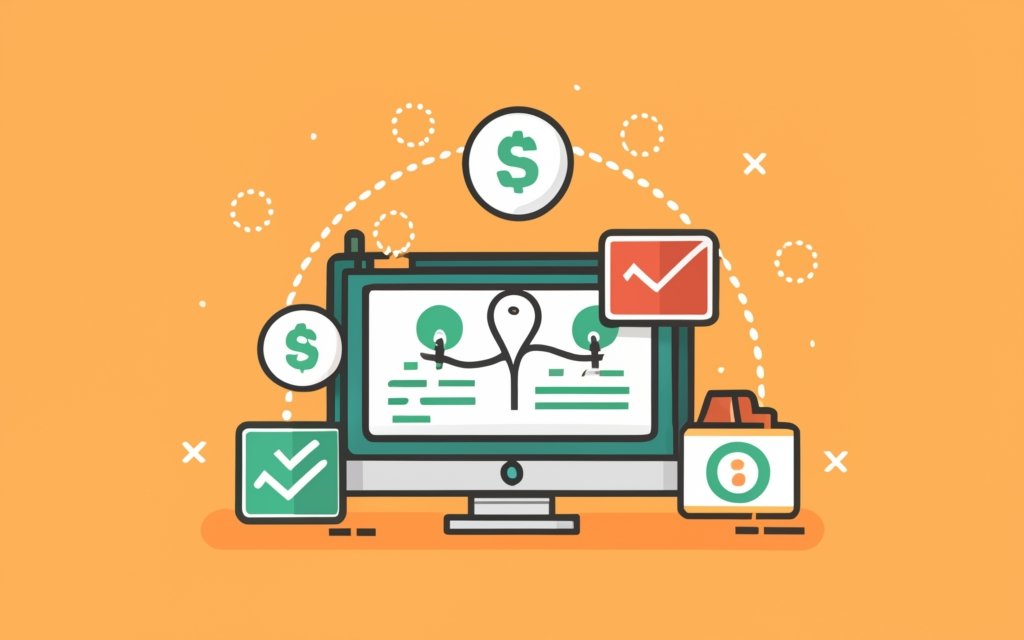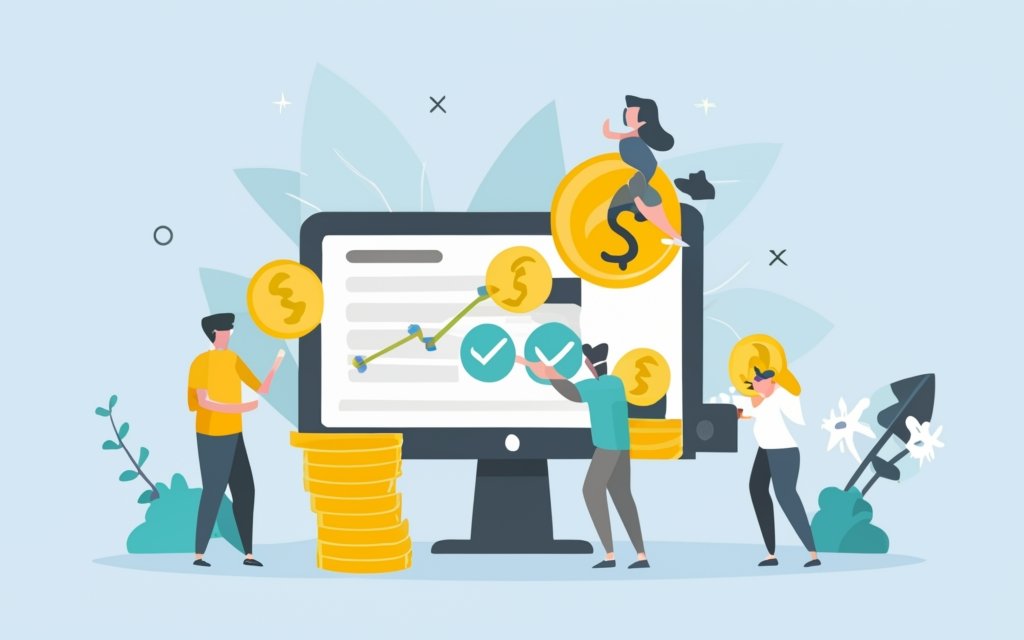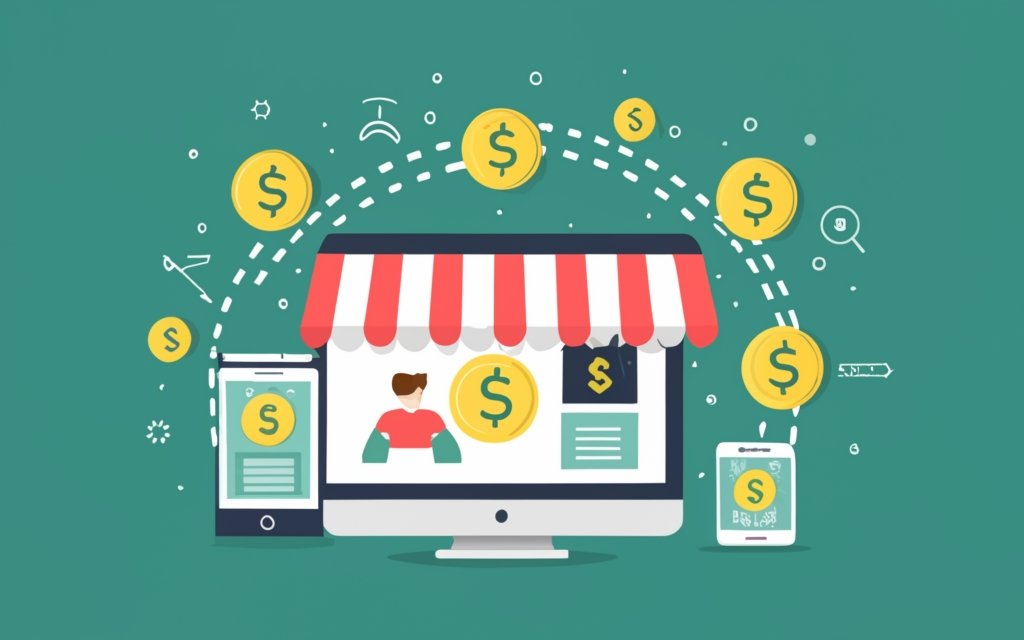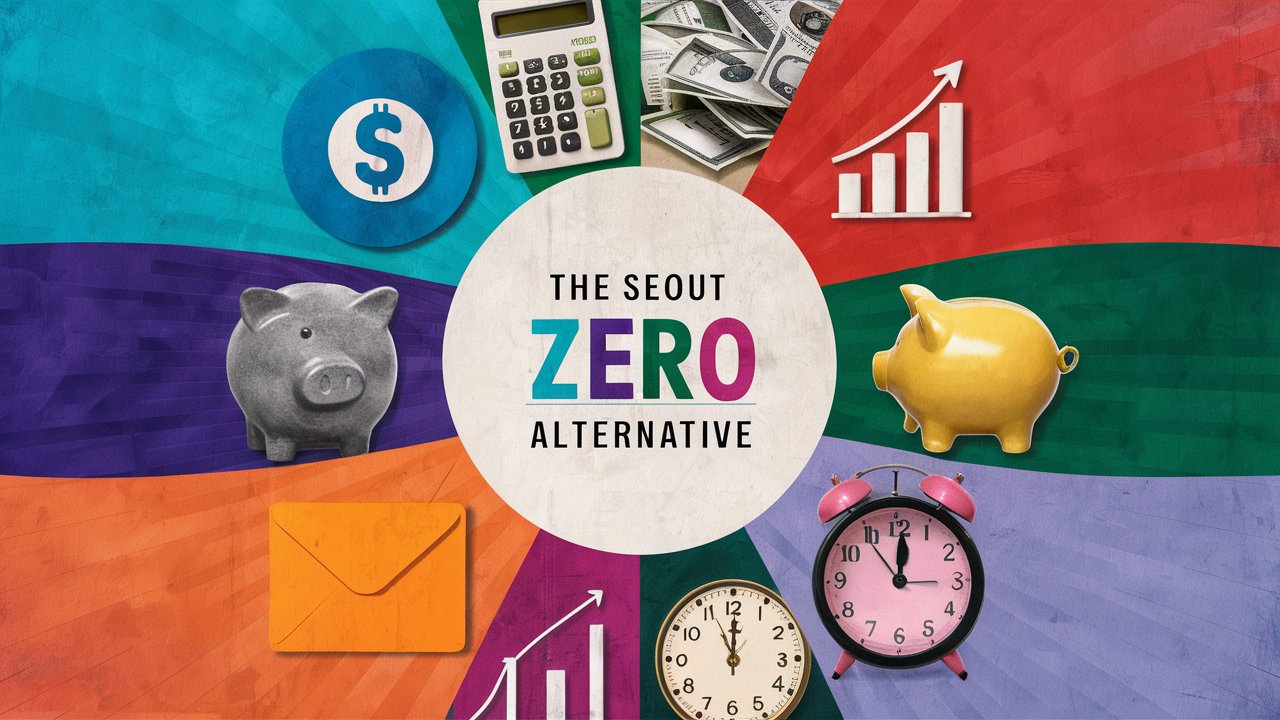1. Community Development Financial Institutions (CDFIs):
For anyone seeking an alternative to predatory loans, Community Development Financial Institutions (CDFIs) are a compelling consideration. CDFIs are private financial institutions that aim at delivering responsible, affordable lending options to low-income and underserved communities. Unlike traditional banks, their primary mission isn’t just earnings; their focus extends to economically disadvantaged areas where mainstream lenders rarely venture.
The transformative power of these organizations cannot be understated. With offerings such as micro-financing and small business loans for resilient startups or enterprises in need, they serve as potent catalysts for growth. This economic empowerment serves to bridge the wealth gap, promoting self-sufficiency in marginalized segments of society.
Few Key Takeaways about CDFIs:
– Prioritize community development over excessive profits.
– Offer a lifeline for financially underserved or distressed communities.
– Provide viable alternatives to risky predatory loans.
– Catalyze grassroots economic growth through affordable lending solutions.
Borrowing from a CDFI is not just about accessing funds; it is an opportunity to break the vicious cycle of debt and poverty by fostering community development — truly a constructive alternative worth considering!
- Pros: Offer loans with low-interest rates and flexible terms.
- Cons: May have limited availability or specific eligibility requirements.
2. Credit Unions:
Credit Unions come as a fitting alternative when hoping to avoid the trap of predatory loans. These not-for-profit cooperative financial institutions play a significant role in fostering community development and providing affordable credit. Members pool their resources, assisting fellow members in need of loans and saving products.
Even more fascinating, credit unions offer lower interest rates on loans compared to traditional banks. Be it personal, mortgage or auto loan, borrowers can enjoy rates that are friendly to their pockets. Credit unions also provide higher returns on savings accounts and certificates of deposit (CDs).
– Lower interest rates on loans.
– Higher return on savings.
Their focus isn’t just limited to banking or high profits; they actively promote financial education amongst members—empowering them with knowledge to make sound financial decisions without falling into debt traps.
Moreover, since these organizations operate locally, they have a better understanding of the member’s needs and are relatively more flexible with loan requirements than standard banks. It’s quintessential banking redefined by thoughtfulness!
- Pros: Offer loans with lower interest rates than traditional banks.
- Cons: May require membership or have limited branch locations.
3. Peer-to-Peer (P2P) Lending Platforms:
Peer-to-Peer (P2P) Lending Platforms represent another alternative to traditional bank loans and high-interest payday loans. These online platforms connect individual lenders directly with borrowers, thereby removing the intermediary, typically a bank or other traditional financial institution.
The result is generally lower interest rates for the borrower and higher returns for investors – a win-win situation that also contributes to faster, easier transactions.

Using P2P lending platforms can offer financial relief while promoting communal support, as you lean on your peers for economic assistance. From popular options like Prosper and LendingClub to specialized sector-focused platforms, individuals have an array of choices at their disposal. But remember:
– Research each platform’s charges and terms before choosing one.
– Be aware of default risks associated with P2P lending.
– Note that funding may not be immediate as it relies on lender availability.
While P2P offers many advantages over predatory loans – such as transparency in operations and fees – they should not be entered into lightly. Before going down this route, ensure you understand all the implications involved – both positive and negative – by consulting professionals or seeking guidance from those who have previously trodden this path. As always, sound financial management involves thorough research, careful planning, and informed decision-making.
- Pros: Can offer competitive interest rates and flexible terms.
- Cons: May have higher fees than traditional loans and may not be available to all borrowers.
4. Paycheck Advance Loans:
Paycheck advance loans, also known as payday loans, are a type of short-term borrowing where a lender extends high-interest credit based on your income. They can seem like the perfect solution when you’re caught in a tight financial squeeze. But it’s beneficial to move beyond the surface appeal and explore the realities of payday loans.
– Quick Access: One advantage they offer is quick access to funds for urgent expenses.
– Supportive For Emergencies: When an unforeseen financial need arises before your next paycheck, these advances can provide a supportive crutch.
– High Interest Rates: The downside however lies in their significantly high-interest rates, which could sink you further into debt if not managed properly.
While paycheck advance loans could be useful as an immediate relief during stressful situations, they should be considered with caution due to their potentially crippling overtime effects.
It’s recommended that other alternatives such as personal savings or low-interest credit cards among others should be explored before resorting to this method of acquiring funds. Remember keeping your finances healthily balanced is much better than meeting immediate needs at high costs!
- Pros: Can provide quick access to cash when you need it.
- Cons: Very high-interest rates and fees.
5. Pawn Shops:
Pawn shops, often overlooked as possible financial solution hubs, provide a viable alternative to predatory loans. These businesses operate by offering loans in exchange for personal property as collateral. Usually, the loan amount you secure is substantially less than the retail value of your item, but the upside is that interest rates are generally significantly lower than what is offered through payday or car title loans.
Think of pawn shops as sprightly accessible micro lenders who have refined their business over centuries. They offer a more immediate and tangible process- walk in with an item of value and walk out with cash. More importantly:
– There’s no requirement for a good credit score.
– Loans get processed swiftly without lengthy paperwork.
Engaging with pawn shop services not only offers you an avenue to raise quick cash but it also leaves you room to reclaim your treasured item once your financial situation improves. Despite their sometimes sketchy reputation, pawn shops indeed serve as an important and noble service point within our financial ecosystem.
- Pros: Can provide loans without a credit check.
- Cons: Very high-interest rates and fees.
6. Family and Friends:
When the weight of financial burden looms large, to whom should we turn? Interestingly, it’s often our nearest and dearest who can offer the most efficient means of sidestepping a predatory loan. Whilst not everyone has family or friends able to provide significant monetary assistance, even small amounts contributed by several loved ones could help alleviate imminent financial pressure.
Tapping into your personal network for support isn’t merely about acquiring funds; it’s also an opportunity to foster profound connections. Intimate discussions over finances might promote honesty, vulnerability and trust within those relationships. Furthermore,
• Your debt won’t accrue rapid interest.
• You may have more flexible payment terms.
• Emotional & mental stress would be significantly reduced.
Conversely, remember that borrowing from personal relations presents its own unique challenges – issues if left untreated might result in resentment or strain. Be certain to agree upon clear repayment plans and maintain open communication throughout this process.
Viewing family and friends as an alternative to capitalizing on a predatory loan allows us not only the chance to evade potential extortion but also deepens meaningful interdependence amongst our social circles.
- Pros: No interest or fees.
- Cons: Can strain personal relationships if not handled carefully.
7. Employer-Sponsored Financial Assistance Programs:
Employer-sponsored financial assistance programs are an exquisite, often overlooked source of monetary help. These initiatives have been increasingly adopted by companies as part of their employee welfare and retention strategies.
As the term suggests, they are tailor-made solutions provided by employers to financially aid employees in times of distress or significant life events, such as education costs, emergency expenses or even buying a home. They can be given in the form of loans, grants or direct payments.

– Low or no-interest loans: This type of non-predatory loan is economical due to its potentially low rates and flexible repayment plans.
– Emergency funds/grants: Some companies offer these not pay-backable benefits for unexpected circumstances like crisis-driven health issues or accidents.
– Advance on salary: A simple yet impactful aspect could be giving an advance payment from your future salary just when you need it most.
The advantage here lies in the interest rate (often smaller than usual ones) and designed-to-enable-you repayment schedules. Remember – never let desperation drive decision-making! Your employer’s financial assistance program could confidently replace a predatory loan with less risky alternatives. Engage with your Human Resources team today to learn if your company offers this benefit; because sometimes solutions are nearer than we think!
- Pros: May offer loans or grants to employees.
- Cons: Not all employers offer these programs.
8. Government Assistance Programs:
Rather than succumbing to the distressing loopholes of predatory loans, exploring government assistance programs can be a significantly more beneficial route. Many people overlook these resources because they presume they’re either ineligible or that the process is overwhelmingly complex. However, you’d be surprised by how extensive and wide-ranging these programs are, thus making them viable alternatives for many.
From the Low Income Home Energy Assistance Program (LIHEAP) helping families manage energy costs, to Temporary Assistance for Needy Families (TANF) providing monthly cash stipends for qualifying households; there’s a veritable treasure trove of aid available.
Additionally, there are programs that cater specifically to food security like The Supplemental Nutrition Assistance Program (SNAP), or housing such as Section 8 which offers rental assistance voucher programs. These are just a few examples; each state has numerous other initiatives hinged towards alleviating financial pressures without leading citizens into debt traps.
Lastly but critically important is being aware and taking advantage of tax credits—like Earned Income Tax Credit (EITC)—which can lead to substantial annual savings. Regardless of your income bracket or current financial circumstance, investigating these options could help forego drastic decisions like high-interest loans and propel you instead towards sustained economic stability.
- Pros: May offer loans or grants to low-income individuals.
- Cons: May have eligibility requirements and limited funding.
9. Earned Income Tax Credit (EITC):
The Earned Income Tax Credit (EITC), quite the unsung hero, is an alternative funding source that could rescue you from falling into the clutches of predatory loans. Typically, EITC is a refundable tax credit designed to support low to moderate-income working individuals and families. However, seldom do people realize its potential as a lifeline in times of financial distress.
Let’s dive straight into what really matters about EITC:
– The amount received depends on income and family size. Notably though, the maximum EITC for 2021 ranges from $543(for those with no children) upwards till $6,728 (for those with three or more children).
– Unlike typical tax deductions or credits which only reduce the amount of taxes owed, being refundable signifies that if your credit exceeds your tax liability, the remainder will be returned to you as a cash refund.
– It’s critical to apply each year even without any taxable income since it won’t automatically continue every year.
It might not sound like conventional advice usually floating around in financial circles but utilizing the often overlooked resource such as EITC can provide relief against overdue bills or unexpected costs. Avoiding predatory loan schemes while also putting money back into your pocket — sounds like hitting two birds with one stone!
- Pros: Can provide a tax refund of up to $6,935.
- Cons: Eligibility requirements and limited funding.
10. Credit Builder Loans:
Devising the apex of credit enhancement techniques, Credit Builder Loans (CBLs) have galloped into the limelight. These loans are quite akin to reverse conventional services, as it is essentially your own money that’s lent back to you over a certain period.
Instead of putting individuals in a catch-22 situation where they need credit to build their score but first need a good score to get credit, CBLs take an innovative approach on building or repairing your credit score.
Interestingly, lenders deposit the loan amount in a locked savings account and once you’ve paid off the loan completely—voila! The funds are at your disposal. What remains paramount however, about these services is each payment made towards settling this loan is reported by the lender to major Credit Bureaus which significantly uplifts your standing in terms of credit history.
* There’s no upfront cash required unlike traditional loans.
* Consistent payments improve monetary accountability.
* Immaculate plan for someone with bad/small/nonexistent credit history.
* Increase financial literacy and create better spending habits.
Transformative role reversal isn’t it? With these attributes packaged in one solution that meets multiple needs, Credit Builder Loans definitely deserve consideration when scouting alternatives for predatory loans.
- Pros: Can help you build credit history.
- Cons: May have higher interest rates than traditional loans.
11. Secured Credit Cards:
Securing your financial future can be a daunting task, especially if you’re dealing with bad credit or no credit history. But there’s hope – secured credit cards are gaining popularity as a viable alternative to risky predatory loans. High-interest rates and damaging terms should not barricade your path to financial freedom when easier, safer options exist!

Secured credit cards demand deposit upfront from the cardholder, effectively eliminating the risk of default for the creditor. Your deposit doubles up as your spending limit; this unique feature positions secured cards as excellent tools for budgeting and disciplined expense management. And that’s not all! Regular use and timely repayments of these cards can significantly boost your credit score.
• Creditors report repayments to all three major credit bureaus.
• Many secured card providers offer an upgrade path to unsecured cards after consistent on-time payments.
• Some creditors even provide rewards on purchases just like mainstream credit cards.
Keep in mind though, while most secure card issuers charge lower annual fees than their unsecured counterparts, some may include additional costs such as application or processing fees. Choose wisely: consider comparing offers before signing up.
Steer clear of predatory loans! Secure better financial health with smart alternatives like secured credit cards- they’re not just plastic in your wallet but ladders towards genuinely healthy financial habits!
- Pros: Can help you build credit history.
- Cons: Require a security deposit.
12. Prepaid Debit Cards:
Focusing on the twelfth option in line, we have the innovative solution of prepaid debit cards. They’re not just for teenagers or gift-giving anymore; they’ve matured into a sensible substitute to various forms of predatory lending. Amidst traditional banking and credit alternatives, these versatile financial tools can offer an unexpected lifeline.
Prepaid debit cards allow you to budget your expenses wisely by preloading only what you need. This ensures you stay within your spending limit and keep debt at bay – particularly beneficial when one might otherwise struggle with overspending or excessive loan borrowing. Forget about high interest rates and hidden fees which are inherent traits of predatory loans, because what you see is essentially what you get with prepaid cards!
This strategy is especially useful in managing recurring payments such as monthly bills or subscriptions efficiently without resorting to expensive short-term loans. Plus, it’s relatively easy to obtain a prepaid card as opposed to lengthy loan approval processes. Delve further into this area – perhaps this could be the monetary management tool that potentially keeps those dreaded lenders at arm’s length!
- Pros: No credit check required.
- Cons: May have fees and may not be accepted everywhere.
13. Budgeting and Saving:
Budgeting and saving are powerful tools in your financial arsenal that can spare you from resorting to predatory loans. They may sound daunting, especially if you’re living paycheck to paycheck, but the truth is, budgeting isn’t about restricting your spending completely. It’s understanding where each penny goes and making conscious choices to build a healthy savings buffer.
The first step of effective budgeting is tracking your income and expenses. This awareness allows you to identify possible leakage points where you could save more. For instance, cutting down on nonessential subscriptions or bringing packed lunch instead of dining out daily could open up modest yet significant savings avenues.
Don’t just save what’s left after spending; instead, spend what’s left after saving – this motto can drastically shift the dynamics of your personal finance mindset. Even small consistent amounts saved per month can accumulate into a sizeable nest-egg over time courtesy of compound interest!
Remember, financial emergencies are inevitable – but falling victim to a vicious cycle of predatory lending isn’t! By practicing deliberate budgeting and diligent saving habits now, we equip ourselves with layers of financial protection for the future!
- Pros: Can help you avoid predatory loans in the future.
- Cons: Requires discipline and may take time.
14. Negotiating with Creditors:
There are numerous resources and strategies at your disposal to tackle outstanding debts, and one oft-forgotten approach is direct negotiation with creditors. This may seem daunting, but many lenders are more amenable to discussion than you might think. After all, what they truly want is to recoup their money, even if it’s in adjusted terms that work better for your financial situation.
When it comes to negotiating:
• Empower yourself by knowing your rights as a debtor.
• Have a firm understanding of your own financial position.
• Be idyllically clear on what you can feasibly pay back.
You’d be surprised how receptive most creditors are to establish a revised payment plan rather than force a default or submit the owed funds into collections. If they believe a compromise can lead to an eventual full repayment on the debt, there’s significant scope for negotiation in terms of lower interest rates or longer repayment periods. Remember: it never hurts to ask; failure lies inherent only when there’s resignation or lack of action.
- Pros: May be able to reduce your debt payments.
- Cons: Can be time-consuming and stressful.
15. Debt Consolidation:
Navigating your way through a labyrinth of debts can be overwhelming. However, one viable alternative to falling prey to predatory loans is debt consolidation, a strategy that combines multiple debts into a solitary payment with potentially lower interest rates.
Debt consolidation functions like this:
– Combine all your existing loan amounts from various creditors into one total sum.
– Take out a new loan at a possibly lower interest rate.
– Use this new loan to pay off your numerous smaller debts.
– You’re then left with just one monthly repayment instead of juggling several.
This system offers several advantages – simplifying your financial landscape, reducing stress levels by dealing with only one lender, and potentially saving you money in the long run by lowering the overall interest rate.

Instead of feeling overwhelmed by several bills each month, you can focus on chipping away at that single consolidated debt. A consolidated loan doesn’t erase the existing liabilities but it provides a more manageable and less costly approach towards financial freedom.
- Pros: Can simplify your debt payments and potentially lower your interest rate.
- Cons: May have fees and may not be available to all borrowers.
16. Bankruptcy:
Bankruptcy, though commonly viewed with a negative lens, is often an overlooked alternative to falling into the trap of predatory lending. Predatory loans, packaged in shiny marketing tactics, can seem like a quick solution but their high interest rates and hidden charges will further push you into financial ruin. Bankruptcy, by contrast, offers an opportunity for clean slates and fresh starts.
In understanding bankruptcy dynamics, main types come to light: Chapter 7 and Chapter 13 – both serving different purposes. To list out:
– Chapter 7 bankruptcy: Ideal if there’s little or no disposable income left after meeting basic expenses; it allows dischargeable debts (like medical bills or credit card debt) to be wiped clean.
– Chapter 13 bankruptcy: Most suitable for individuals with regular income who want to pay back all or part of their debts; this type of filing enables one to reorganize their debt repayment plans while retaining assets.
Bankruptcy isn’t the path taken lightly but it provides hope amidst financial crisis when used wisely alongside professional advice tailored to your unique situation. It may not only save one from spiraling down due to predatory loans but also provides an opportunity for them to regain control over their financial future.
- Pros: Can provide a fresh start from debt.
- Cons: Can damage your credit score and may have long-term financial implications.
17. Credit Counseling:
Credit counseling service is an effective alternative to falling into a predatory loan trap. It’s like having a financial advisor whose main aim is to help you improve your creditworthiness, manage your debt, and get you closer to financial independence.
These agencies are often nonprofit organizations that, beyond providing advice, propose debt management plans or individualized programs where they negotiate with your creditors for lower interest rates or reduced fees.
What sets credit counseling apart from the rest? Firstly, counselors provide insights into tackling issues instead of short-term fixes. They educate clients on budgeting skills, offer strategies on reducing debt and also advise on appropriate credit solutions based on their distinct circumstances.
Secondly, they address bad credit habits by coaching individuals towards financial discipline and improved future decisions— virtually helping you break free from the cycle of poor financial health.
– The reality-focused approach to unraveling financial problems.
– Developing better credit habits for the long haul.
Remember though that not all counseling services are created equal; it’s vital before engaging one that its reputation and qualifications be thoroughly checked! Take this route if what you want is more than just a loan: but actual steps towards healthier future finances!
- Pros: Can help you develop a plan to manage your debt.
- Cons: May be expensive.
18. Legal Aid:
Legal Aid is an absolute gem for those trapped in financial predicaments, offering another distinct alternative to predatory loans. Essentially a not-for-profit service, Legal Aid provides low or even zero-cost legal services to individuals who simply cannot afford a high-priced attorney. Imagine facing a challenging situation and having on-call experts ready to walk you through the entire legal process – that’s what Legal Aid can do for you.
• They assist with general civil matters including: foreclosures, bankruptcy and credit card debt.
• Offering professional advice on dealing with aggressive creditors – this can often lead to informal resolution negating the need for court action.
• Some branches provide educational workshops about various types of law related concerns that matter most to low income communities.
What sets Legal Aid apart as an alternative route is its endorsement by judicial systems worldwide in ensuring justice isn’t merely available but attainable for everyone.
By providing this type of aid, they contribute towards creating informed societies armed with knowledge about their rights and how best to protect them without resorting to potentially debilitating loans. Regardless of your socioeconomic background, remember that when it comes just down ‘Justice’, it should never be painted with hues of green or gold.
- Pros: Can provide free or low-cost legal assistance.
- Cons: May have limited availability.
19. Consumer Protection Agencies:
Consumer protection agencies often fly under the radar, but they can be a vital tool for anyone seeking alternatives to predatory lending. These organizations are designed to protect consumers from unfair or fraudulent business practices in all areas, including the financial sector. Their mission lies at empowering consumers with integral knowledge and resources for making informed financial decisions.
Agencies like the Federal Trade Commission (FTC), Consumer Financial Protection Bureau (CFPB), and your local state’s Attorney General Office offer free preventative measures such as financial literacy education, credit counselling, regulatory oversight of lenders, dispute resolution services and more. Before you get enticed by easy access predatory loans:
– Utilize tools provided by these agencies to cross-check lender credibility.
– Familiarize yourself with your rights as a consumer borrowing money.
– Report any unfair treatment or scam offers directly to these watchdogs
In this way, consumer protection agencies not only safeguard our interests but also provide valuable support when we’re swimming in tricky financial waters.
- Pros: Can help you file complaints against predatory lenders.
- Cons: May not be able to resolve all disputes.
20. Financial Education:
Beyond traditional lending sources, financial education plays a significant role in equipping individuals with the knowledge to sidestep predatory loans. It enlightens people on good money management, assisting them in making well-informed decisions about credit options, saving and budgeting.
Here are some highlights of acquiring proper financial edification:
– Insightful Perspective: Financial education provides a fresh view of managing personal finances effectively instead of falling into quick cash solutions that prove detrimental.
– Practical skills: Learning how to read financial statements, understanding loan agreements or deciphering interest rates – such skills not only increase your fiscal literacy but also introduce you to new ways of handling debt.
Financial education works as an antidote against the potential pitfalls involved with harmful loans while stimulating better economic stability for households. Indulging in a course, attending workshops or online training can help one navigate through complex financial situations, keeping predatory loans at bay.
- Pros: Can help you make informed financial decisions.
- Cons: May take time and effort to learn.
Conclusion.
In conclusion, while predatory loans may seem like an easy solution during times of financial hardship, they often lead to long-term problems and escalating debt. There are several reliable alternatives available, such as personal loans, credit union loans, and even assistance programs that can provide a lifeline during financial emergencies.
It’s pivotal for individuals to analyze their options carefully and make informed decisions about their financial future. By opting out of predatory lending practices and exploring better substitutes, one can gain control over their economic stability.
Let’s empower ourselves to break away from the chains of high-interest predatory loans; your wallet will thank you for it.I wrote another article about >>> Alternatives to Getting a Payday Loan and Pros and Cons that would be a good fit for you to read.
I am commitment to crafting compelling narratives and delivering insightful content continues to inspire and inform readers across various platforms. Explore her articles on AlternativesZone.com and FactAfterFact.com to experience a rich tapestry of knowledge and discovery. Here I Analyze and Test the products and services together with my team before we recommend them to our users. Nice Reading Here!











